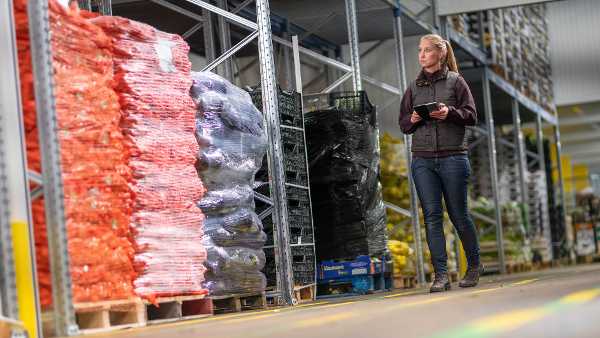International sanctions: how it works

- Sandra Visser-Meijer
- Background
- Edited 14 October 2025
- 3 min
- Managing and growing
- International
Sanctions are international measures against a country, organisation, or person. Often sanctions are imposed as a reaction to political events. A sanction makes trade difficult or even impossible.
Are there sanctions imposed on a country you trade with? This often means that you are not allowed to export or import a certain product. Or that you are not allowed to do business with certain people or companies in that country. As well as sanctions, you sometimes encounter a trade barrier when trading with other countries. This barrier causes problems in your importing and exporting.
Imposing sanctions
Among others, the United Nations (UN) and the European Union (EU) are able to impose sanctions. They take these coercive measures to punish undesirable behaviour by countries, organisations, or persons . There are sanctions in place for dozens of countries. For example, China, Iran, Russia, North Korea, and Libya.
Overview of sanctions
Governments lay down sanctions in regulations or decrees. They usually share sanctions through news sources such as radio and television. An overview of UN and EU sanctions can be found on these websites:
The Dutch government provides more background information on international .
Checking for sanctions
Suppose you have an ongoing contract with a customer in a country for which there is suddenly a sanction. Fulfilling earlier agreements may then no longer be possible. In such a case, check your business partners. Find out what they use the product for, and which customers they sell your products to.
The Netherlands Enterprise Agency (RVO) explains how to check for sanctions for products, services, companies, and (in Dutch).
The most common penalties
Imposing sanctions on countries usually involves these 4 measures:
1. Financial sanctions
Financial sanctions dry up financial flows to a large extent. Bank balances are frozen by the measures, giving funds (in)directly to certain persons and organisations is prohibited. Sometimes there may be a complete ban on financial transactions from and to a certain country.
2. Trade restrictions
An embargo is sometimes imposed on goods that earn money for the authorities in that country. For example, oil or timber. Embargo is another word for ban. Sometimes you need an additional licence. For example, for sensitive goods, software, and technology that a country might use in weapons programmes.
Diamonds
Trade in rough diamonds is also subject to sanctions. These are known as conflict diamonds or blood diamonds. Rebels trade these precious stones to finance an armed conflict with their country's government. The Kimberley Process is an international alliance dedicated to eliminating conflict diamonds from the trade. The Antwerp World Diamond Centre offers more information about importing or exporting rough diamonds.
3. Travel and visa restrictions
Sanctions are sometimes imposed on individuals. They are then subject to a travel ban or visa restrictions.
4. Arms embargoes
Arms embargoes ban the import or export of weapons, protective clothing, and military vehicles, Goods that can be used in different situations also fall under an arms embargo. These are called dual-use goods. For example, some flame retardants are used in construction, but they can also be used as a raw material for poison gas. You will need a licence to import or export dual-use goods.
You apply for a licence to the Central Import and Export (CDIU). You need the product’s CN code. This is the commodity code for your product when exporting.
Exceptions to sanctions
Sanctions must affect the right people and organisations. The aim is to spare the population of an affected country as much as possible. That is why there are always exceptions. Examples of these are diplomatic traffic, the supply and financing of humanitarian goods, and crisis management operations.
Violating sanctions
EU sanction measures apply to all EU member states. The Dutch government does not adapt these measures to Dutch laws. However, the Dutch government does stipulate in a sanctions regulation that violating the regulation is punishable. For this purpose, the government converts EU sanctions decisions into Dutch law.
When violating a sanction, you violate the Sanctions Act . You then commit an economic crime. This is a criminal offence for which you will be fined or imprisoned. Violating a sanction usually also causes reputational damage and high legal costs.
Evading sanctions
Knowingly evading a sanction is also a crime and can be punished. Do you suspect that your customer is ultimately supplying the goods to a country for which sanctions are in place? If so, ask for an End-user statement .
In it, your customer tells you more about the sale and use of the products. Determining the final destination of your product remains tricky. There could always be a second or third buyer.
Read more about Dutch government policy on international .
Difference between sanctions and trade barriers
Trade barriers are obstacles you encounter when doing international business. The country you do business with determines these barriers. Think of unnecessary administrative rules or non-agreed import duties. Trade barriers are not contained in an EU regulation or decision. Do you encounter trade barriers? Report them to the Trade Barriers Disclosure Office of the Ministry of Foreign (in Dutch). They will help you find a solution.
Within the EU
You can experience trade barriers within the EU if an EU country does not properly comply with European rules. For example, because a government organisation does not follow the rules on the internal market. Or your diploma or professional qualification is not recognised. You can report these issues to . This EU network mediates between you and the relevant national organisations free of charge to find a solution.


